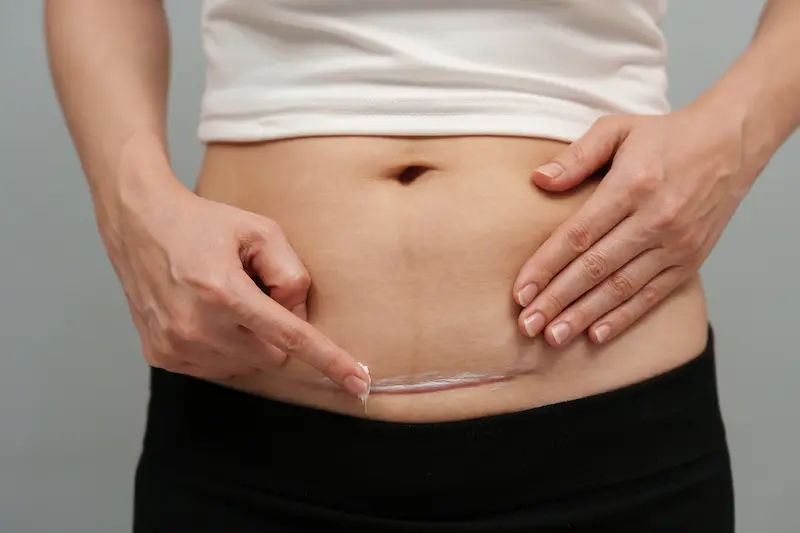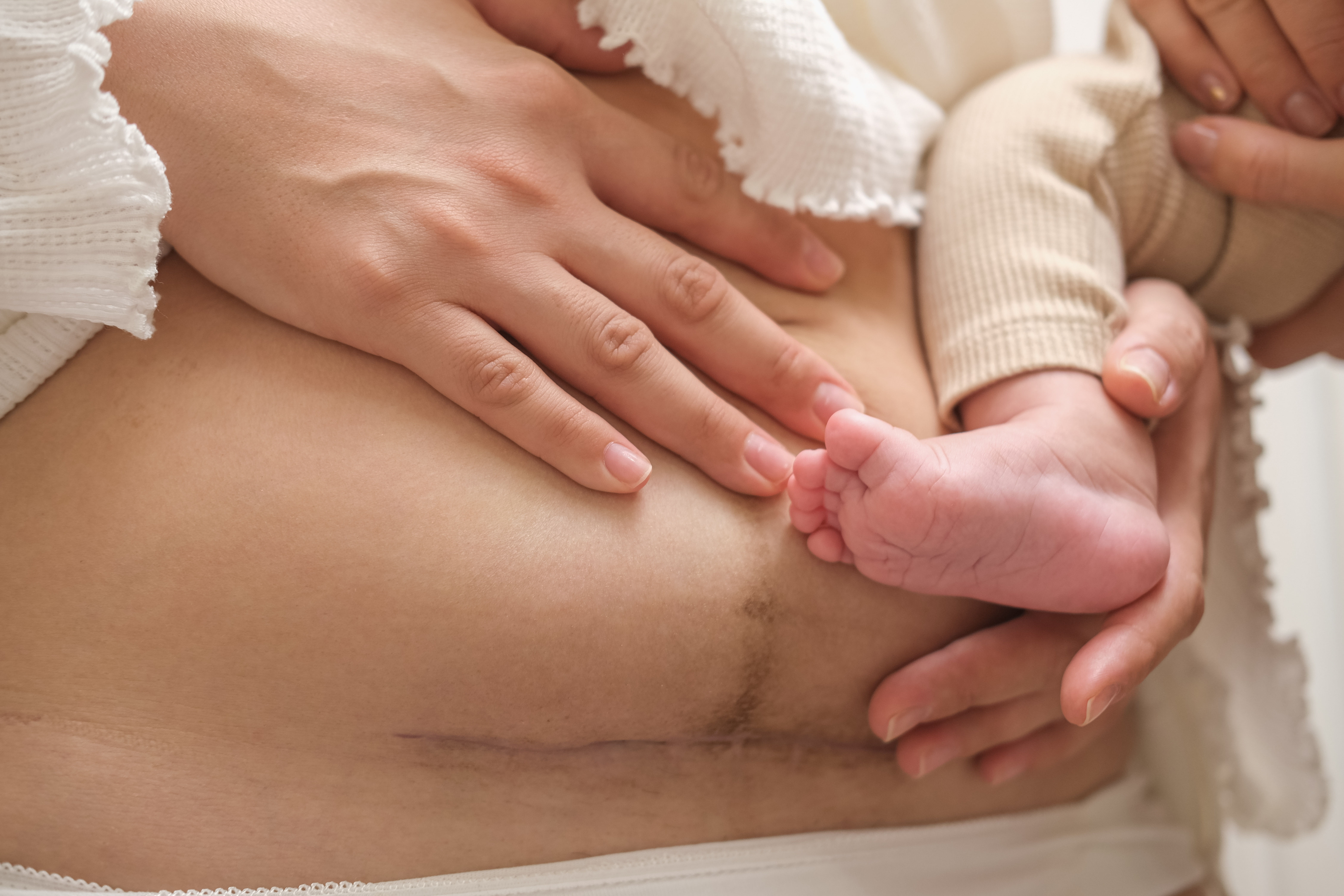Bladder Not Emptying After Hysterectomy
Experiencing trouble emptying your bladder after a hysterectomy? Learn why it happens, common symptoms, and practical ways to manage this condition for a smoother recovery.

Written by Dr.Sonia Bhatt
Last updated on 13th Jan, 2026
.webp?tr=q-80,f-webp,w-350,dpr-2,c-at_max 700w)
Introduction
A hysterectomy, surgical removal of the uterus, is a common procedure that many women undergo for various medical reasons. While it can provide relief from conditions like fibroids, endometriosis, or cancer, some women experience bladder-related issues afterward, such as difficulty emptying the bladder completely. If you're facing this problem, know that you're not alone, and there are ways to manage it effectively.
Why Does This Happen?
The bladder and uterus are close neighbours in the pelvic region. During a hysterectomy, nearby nerves, muscles, and tissues may be affected, leading to temporary or sometimes long-term changes in bladder function. Here are some possible reasons:
1. Nerve Damage – The surgery can sometimes affect the nerves that control bladder function, leading to weakened signals between the bladder and brain.
2. Muscle Weakness – The pelvic floor muscles, which support the bladder, may become weaker after surgery, making it harder to empty the bladder fully.
3. Swelling or Inflammation – Post-surgical swelling can put pressure on the bladder or urethra, causing incomplete emptying.
4. Bladder Prolapse – In some cases, the bladder may shift slightly after the uterus is removed, affecting urine flow.
Consult Top Specialists for Your Symptoms
Symptoms to Watch For
If your bladder isn’t emptying properly after a hysterectomy, you may experience:
A frequent urge to urinate but only passing small amounts
Difficulty starting urination
A weak or interrupted urine stream
Feeling like your bladder is still full after urinating
Discomfort or pressure in the lower abdomen
Increased risk of urinary tract infections (UTIs)
How to Manage the Condition
While this issue can be frustrating, there are several ways to improve bladder function:
1. Pelvic Floor Exercises (Kegels)
Strengthening your pelvic floor muscles can help improve bladder control. Here’s how to do Kegel exercises:
Tighten the muscles you would use to stop urinating midstream.
Hold for 5 seconds, then relax for 5 seconds.
Repeat 10-15 times, 3 times a day.
2. Double Voiding Technique
After urinating, wait a few seconds, then try again to empty any remaining urine.
3. Stay Hydrated (But Avoid Bladder Irritants)
Drink enough water to keep urine light yellow.
Limit caffeine, alcohol, and spicy foods, as they can irritate the bladder.
4. Scheduled Bathroom Trips
Try urinating every 2-3 hours, even if you don’t feel the urge, to prevent overfilling.
5. Medications or Catheter Use (If Needed)
In some cases, your doctor may prescribe medications to relax the bladder or recommend intermittent self-catheterisation to help empty the bladder fully.
6. Physical Therapy
A pelvic floor therapist can guide you through exercises and techniques to improve bladder function.
When to See a Doctor
Seek medical advice if you experience:
Persistent difficulty urinating
Frequent UTIs
Pain or burning during urination
Blood in urine
Inability to urinate at all (seek emergency care)
They may recommend tests like:
Post-void residual measurement to check leftover urine
Urodynamic testing to assess bladder function
Cystoscopy to look inside the bladder
Final Thoughts
Bladder issues after a hysterectomy can be distressing, but with the right care, most women see improvement over time. Be patient with your body, follow these tips, and don’t hesitate to seek medical advice if needed.
If you're struggling with bladder problems after surgery, consider booking a consultation with a specialist through Apollo 24|7 for personalised care and support. You deserve to feel comfortable and confident in your body again!
Consult Top Urologists
Consult Top Specialists for Your Symptoms
Dr S K Singhanina
Urologist
25 Years • MBBS/MS/DNB AND MCH UROLOGY
Guwahati
Apollo Clinic Guwahati, Assam, Guwahati
Dr P K Bagchi
Urologist
10 Years • MBBS, MS (Gen. Surgery) M. Ch. (Urology)
Guwahati
Apollo Clinic Guwahati, Assam, Guwahati

Dr. Sandeep Maheswara Reddy Kallam
Urologist
6 Years • MBBS, MS (General Surgery), M Ch (Genito-Urinary Surgery), Post Doctoral Fellowship in Uro-Surgical Oncology
Visakhapatnam
Dr. SANDEEP MAHESWARA REDDY K _- best Urologist in visakhapatnam, Visakhapatnam
(300+ Patients)

Dr. Pradeep Champawat
Urologist
10 Years • MBBS, MS, DNB Urology
Delhi
Apollo Hospitals Indraprastha, Delhi
(175+ Patients)

Dr. Pavan Kumar S K
Urologist
11 Years • MBBS, MS , Mch( Urology) DNB (Urology)
Bengaluru
Apollo Clinic, JP nagar, Bengaluru
Consult Top Urologists
Dr S K Singhanina
Urologist
25 Years • MBBS/MS/DNB AND MCH UROLOGY
Guwahati
Apollo Clinic Guwahati, Assam, Guwahati
Dr P K Bagchi
Urologist
10 Years • MBBS, MS (Gen. Surgery) M. Ch. (Urology)
Guwahati
Apollo Clinic Guwahati, Assam, Guwahati

Dr. Sandeep Maheswara Reddy Kallam
Urologist
6 Years • MBBS, MS (General Surgery), M Ch (Genito-Urinary Surgery), Post Doctoral Fellowship in Uro-Surgical Oncology
Visakhapatnam
Dr. SANDEEP MAHESWARA REDDY K _- best Urologist in visakhapatnam, Visakhapatnam
(300+ Patients)

Dr. Pradeep Champawat
Urologist
10 Years • MBBS, MS, DNB Urology
Delhi
Apollo Hospitals Indraprastha, Delhi
(175+ Patients)

Dr. Pavan Kumar S K
Urologist
11 Years • MBBS, MS , Mch( Urology) DNB (Urology)
Bengaluru
Apollo Clinic, JP nagar, Bengaluru




